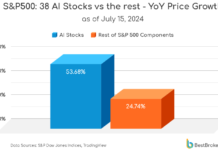
2020 has been a year that has changed a lot of things around the world. With worldwide stay-at-home orders, one of the biggest changes has been in the way people work and learn and being within a Wi-Fi range became more important than ever before. There was a massive surge in demand for laptops and smartphones.
Chromebooks were originally developed as a platform around Google’s apps such as Chrome, Gmail etc. and were most preferred by students or people with lower budget and who knew they will be using the device only for writing, web browsing, video streaming and the like. For them, Windows and OS X were overburdened with features they’ll never use but they had to pay for when buying a laptop. Chromebooks were therefore most popular with school aged children, low-income college student, or simply a person who is not an artist, designer, scientist, or video-game player and has no need for video game capability or Adobe Photoshop.
However, with time, the capabilities of Chromebooks have widened so much so that there is hardly any difference between a Chromebook and a laptop. The demand for Chromebooks became most conspicuous during the coronavirus pandemic. According to Reports and Data, the global Chromebooks market is projected to grow at a rate of 8.2% in terms of value, from USD 5.95 Billion in 2019 to reach USD 14.03 Billion by 2027. But 2020 was an exceptional year during which the demand for Chromebook surged unprecedently and in Q1 2021, over 12 million units being shipped within the first 3 months of the year.
HP shipped 4.3 million Chromebooks, Lenovo came in second with 3.1 million, and Acer, Samsung, and Dell rounded out the top five with over 1 million units shipped. More OEMs are expected to take an active interest in manufacturing Chromebooks as a result of this development. Targeting budget buyers or SMBs who can adjust to the Chromebook as their default computer would help the company ensure that the Chromebook continues to drive sales charts.
But Chromebooks are evolving and becoming more than “inexpensive, streamlined alternative to a Windows laptop or MacBook.” Chrome OS has evolved into a highly functional operating system. On Chrome OS, programs like Microsoft Office are now a breeze to use and Office on Chrome gets closer to the full-featured Office on macOS and Windows every year. Perhaps more importantly, the Chromebook is thriving because consumers, students, and business people are investing more and more time inside the Chrome browser — where one can access almost every software or application these days.
However, Chromebooks are expected to become more expensive in the long run. That’s because they’re adding more features, such as touchscreens, and appealing to markets other than schools. Google is updating the operating system at the same time. For instance, Acer is expanding its “innovation,” as public schools, which have been the Chromebook’s primary customers to date, are beginning to demand more than the cheaper standard ones.
Possibly one of the biggest drawbacks of Chromebook is the reliance on web applications and cloud storage as these features make the Chromebook rather useless without a permanent internet connection. While access to permanent internet connection is becoming easier around the world, it’s still a difficulty in most lower income countries. Additionally, Chromebook does not seem to be targeting the markets of emerging economies. For instance, Chromebook has hardly entered the market in India, which a massive market as has been made evident by its ubiquitous smartphone usage. The average person in India has no notion of what a Chromebook is and for a cost sensitive market like India, Chromebooks are much more expensive with little to offer.
Source: https://www.reportsanddata.com/report-detail/chromebooks-market

















